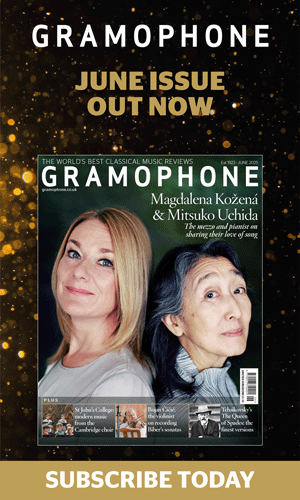Harpsichordist and conductor Gustav Leonhardt has died
James Jolly
Tuesday, January 17, 2012
One of the world’s greatest harpsichordists, and an artist who inspired many generations of musicians, Gustav Leonhardt, has died. He had only last month announced his decision to retire from public performance after a concert in Paris due to ill-health.
As well as a keyboard-player of rare distinction (he played the harpsichord, pipe organ, claviorganum, clavichord and fortepiano), Leonhardt was also celebrated as a conductor, teacher and scholar.
He studied in Basel at the Schola Cantorum Basiliensis, working with Eduard Müller for the harpsichord and organ. He later moved to Vienna and started to make a name for himself as a harpsichordist. He was appointed professor of harsichord at the Academy of Music there before returning to his native Amsterdam to take up a similar role at the Amsterdam Conservatory. He was a pioneering recording artist – the early 1950s saw major first recordings from him of Bach’s Goldberg Variations and The Art of Fugue.
The 1950s saw him founding the Leonhardt Baroque Ensemble and working with the English countertenor Alfred Deller (together they recorded a couple of Bach cantatas, Nos 54 and 170). The ensemble numbered among its ranks some of the major players in the early historically informed performance practice movement: as well as Leonhardt’s wife, the violinist Marie, the players were Eduard Melkus and Alice Harnoncourt, née Hoefelner (violins), Nikolaus Harnoncourt (cello) and Michel Piguet (oboe). Leonhardt and the ensemble would later go on to participate in the Bach cantata series recorded for Telefunken (later Teldec), a project shared with Nikolaus Harnoncourt and his Concentus Musicus Wien. It was a project that would run from 1971 to 1990 and earn them a Gramophone Special Achievement Award.
The list of his pupils reads like a Who’s Who of the keyboard world numbering among its ranks players like Bob van Asperen, Christopher Hogwood, Philippe Herreweghe, Richard Egarr, Alan Curtis, Ton Koopman, Davitt Moroney, Martin Pearlman, Christophe Rousset, Andreas Staier, Skip Sempé and Mahan Esfahani.
In 1967, he played the role of JS Bach in the film, The Diary of Anna Magdalena Bach, an Italian-German co-production directed by Daniele Huilet and Jean-Marie Straube (Leonhardt’s pupil Bob van Asperen played Johann Elias Bach and Nikolaus Harnoncourt the Prince of Anhalt-Cöthen).
As well as his work on the music of Bach, Leonhardt’s repertoire ranged from early Elizabethan keyboard music to early Mozart, but it was the music of the baroque that was at the centre of his musical interest. His discography was extensive comprising about 150 recordings, including about 70 solo discs, for a range of companies including Vanguard, Telefunken/Teldec, Deutsche Harmonia Mundi, Harmonia Mundi, EMI Electrola, Seon, RCA, Philips, Virgin Classics, Sony Classical and Alpha.
Academy of Ancient Music director Richard Egarr, who studied with Gustav Leonhardt, has added the following comments:
'I had the great privilege and pleasure to have studied with Gustav and to know him a little personally. Both he and his wife Marie were true pioneers in the field of historical performance. They clung to their ideals of thorough research coupled with (more importantly) a deeply musical and practical application of this knowledge. This is truly the ending of an era.
'He was an aristocratic man, in some ways demonstrating odd contradictions. His living environment was utterly eighteenth century - a CD player and fax machine were, I think, grudging additions to the household. At the same time he had a passion for fast cars. I remember going on a trip with him and Marie to see a couple of old organs in Holland; being carried there extremely fast along the Dutch motorway in his latest Alfa. After seeing the second organ somewhere in a small suburb it was late and dark and we were somewhat lost. No sat-nav of course. Gustav just looked up at the sky to get his bearings from the North Star...
'His passing is a huge loss.'








